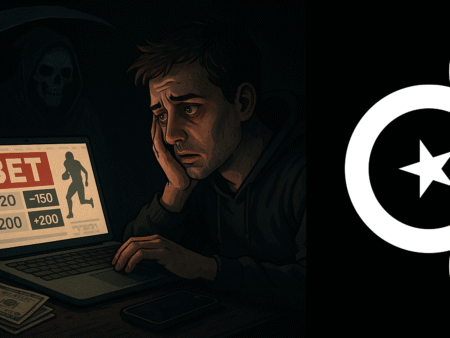On July 28, Caesars Entertainment filed a motion to dismiss a high-profile lawsuit from Thomas McPeek, a Chicago-based bettor who claims he was wrongly denied $800,000 in sports betting winnings.
McPeek placed hundreds of parlay bets using self-service kiosks at Caesars-owned casinos in Iowa and Indiana, specifically the Isle Casino in Bettendorf and the Horseshoe Casino in Hammond. His strategy, which he openly admitted was designed to gain an edge, earned him $450K and $350K respectively. He also won $127K at Boyd Gaming’s Blue Chip Casino, which did pay out.
The dispute stems from Caesars’ claim that McPeek violated house rules through cross-state coordination and structuring, two practices that are commonly restricted by casino compliance policies. Cross-state coordination involves placing bets across state lines to exploit odds or limit discrepancies, while structuring is used to avoid triggering cash transaction reports under the Bank Secrecy Act.
Following the bets, Caesars reported the activity to the Indiana Gaming Commission (IGC) and Iowa Racing and Gaming Commission (IRGC), both of which upheld the voiding of the wagers.
McPeek responded with a federal lawsuit in Nevada, alleging 18 causes of action, including violations of the Fourteenth Amendment and Nevada’s Deceptive Trade Practices Act (DTPA). However, Caesars argues that the case doesn’t belong in Nevada for multiple reasons:
- No significant activity related to the dispute occurred in Nevada.
- The DTPA doesn’t apply to out-of-state conduct.
- Caesars, as a parent company, wasn’t directly involved in the betting transactions.
- The company’s terms of service require disputes to be settled through arbitration in Iowa.
Additionally, under Federal Rule of Civil Procedure 12(b)(1), Caesars says that jurisdiction lies with state agencies, not federal courts. They also cite Indiana Code § 4-21.5-5, which outlines the appropriate review process within Indiana.
This case highlights how complex legal frameworks and strict betting regulations can lead to major disputes—even when large sums are on the line. Bettors hoping to game the system may find themselves facing not just voided bets, but long legal battles across multiple states.

